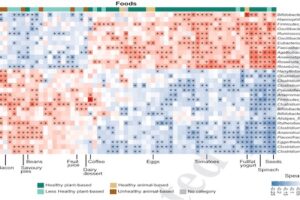Individuals who eat healthily throughout adulthood improve their likelihood of enjoying better physical fitness later in life, reports a recent study in The Journals of Gerontology: Series A.
Adults who had consumed a healthy diet over the long-term study period performed better in three standardised physical performance measures at age 60-64, found a research team from University of Southampton (UoS), in collaboration with University College, London.
The study analysed subjects’ diet at four points between ages 36-64. The researchers found that those who consumed more fruit, vegetables and wholegrain bread, (and less refined carbohydrates and processed meats), performed better in chair rise, standing balance and timed up-and-go (TUG) tests.
Adults who had improved their diet later in the study period also showed better performance in the first two of these tests, suggesting that changing to a better dietary regime, even in early old age could be beneficial.
“Improving the quality of your diet can have a beneficial effect on health whatever your age. However, this study suggests that making good dietary choices throughout adulthood – by cutting down on highly processed foods and incorporating more fruit, vegetables and whole grains into your diet – can have a significant beneficial effect on strength and physical performance later in life, helping to ensure a much healthier old age,” commented lead author Sian Robinson, Professor of Nutritional Epidemiology at UoS.
Studies examining long-term benefits of healthy diets in mid-life on physical performance in old age are relatively rare. However, results in this study are consistent with the most comparable other long-term trial, the Whitehall cohort .
Implications
“If these observational findings are confirmed in other studies, they have important public health implications: positive changes in dietary patterns in early older age could have benefits for physical performance and healthier ageing, ” wrote the researchers.
“The link between dietary patterns and frailty in older people will open the door to effective interventions against the age-related decline in musculoskeletal function which is such a growing cause of disability in ageing populations worldwide ,” concluded study leader Professor Cyrus Cooper, Director of the Medical Research Council Lifecourse Epidemiology Unit at UoS.
Source: The Journals of Gerontology: Series A / Nutraingredients.com
Published online: 13 October 2017. DOI: 10.1093/gerona/glx179
“Adult Lifetime Diet Quality and Physical Performance in Older Age: Findings From a British Birth Cohort”
Authors: Sian M. Robinson, Cyrus Cooper, et al





